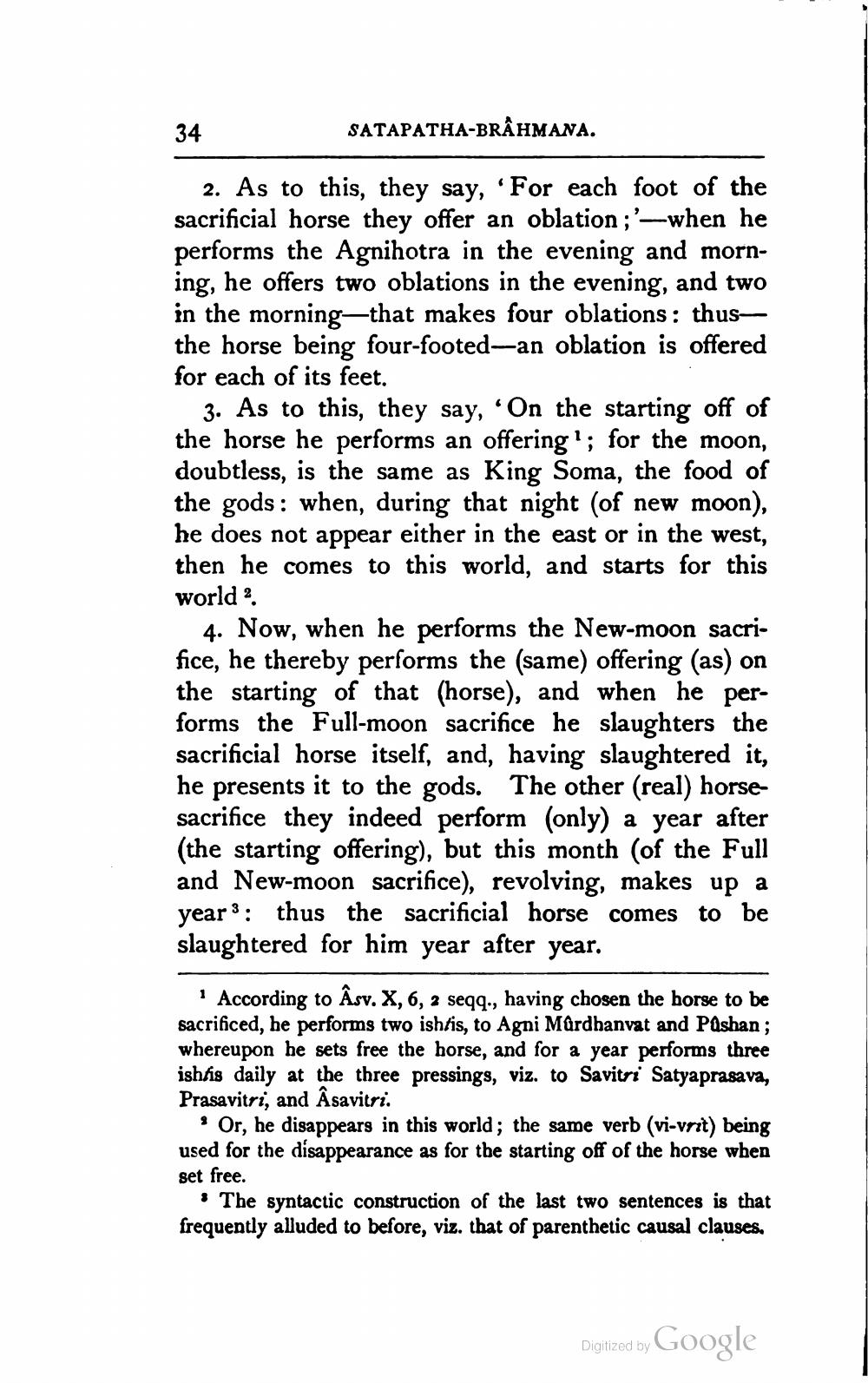________________
SATAPATHA-BRAHMANA.
2. As to this, they say, 'For each foot of the sacrificial horse they offer an oblation;'-when he performs the Agnihotra in the evening and morning, he offers two oblations in the evening, and two in the morning that makes four oblations: thus— the horse being four-footed-an oblation is offered for each of its feet.
34
3. As to this, they say, 'On the starting off of the horse he performs an offering; for the moon, doubtless, is the same as King Soma, the food of the gods: when, during that night (of new moon), he does not appear either in the east or in the west, then he comes to this world, and starts for this world 2.
4. Now, when he performs the New-moon sacrifice, he thereby performs the (same) offering (as) on the starting of that (horse), and when he performs the Full-moon sacrifice he slaughters the sacrificial horse itself, and, having slaughtered it, he presents it to the gods. The other (real) horsesacrifice they indeed perform (only) a year after (the starting offering), but this month (of the Full and New-moon sacrifice), revolving, makes up a year thus the sacrificial horse comes to be slaughtered for him year after year.
1 According to Âsv. X, 6, 2 seqq., having chosen the horse to be sacrificed, he performs two ish/is, to Agni Mûrdhanvat and Pushan; whereupon he sets free the horse, and for a year performs three ishfis daily at the three pressings, viz. to Savitri Satyaprasava, Prasavitri, and Asavitri.
'Or, he disappears in this world; the same verb (vi-vrit) being used for the disappearance as for the starting off of the horse when set free.
The syntactic construction of the last two sentences is that frequently alluded to before, viz. that of parenthetic causal clauses.
Digitized by
Google




